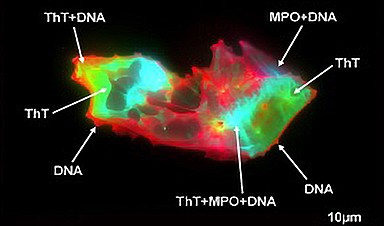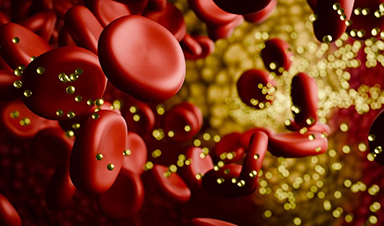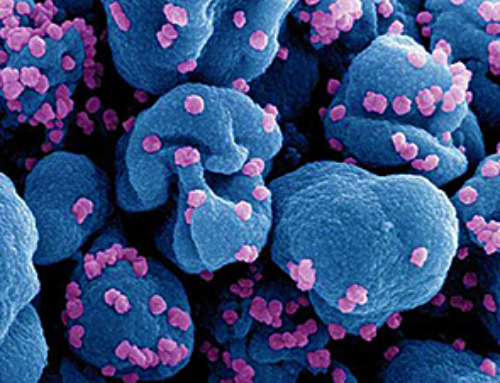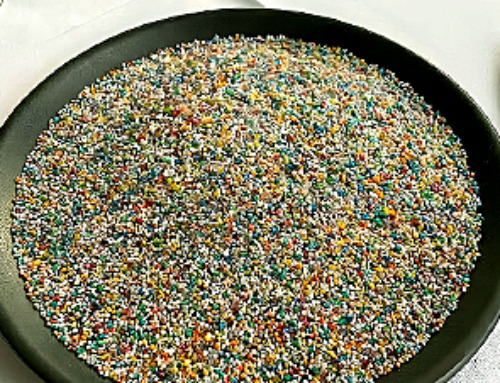The use of nanoparticles and other nanoscale materials has been gathering a lot of significant interest in recent years and has even adapted into its own interdisciplinary field of science known as nanomedicine. Whilst there are still some issues to be ironed out within the nanomedicine field, it has brought about great advances within medicine, including many nanoparticle-based therapies for cancer. Given that the alternative to such treatments is longer periods of intensive chemotherapy and radiotherapy (although some therapies still use these processes but the cancer killing effects are more enhanced), there has been a lot of research dedicated to fighting cancer within the nanomedicine sector.
Cancer is currently on the rise. Currently, around every 1 in 8 males in the UK will be diagnosed with prostate cancer, with there being a significantly higher risk if the males are older, or if there is a pre-existing history of the cancer in the family. There are a range of nanoparticle therapeutic treatments undergoing developments, some of which are used to enhance the effects of chemotherapy and radiotherapy, whereas others deliver specific drugs to cancer cells.
Nanocarrier vessels are the most widely used therapeutic treatment for all types of cancer, as it enables the cancer-killing drug payload to be delivered to a specific site of interest (i.e. the tumour), whereupon the drug is released to the cancer cells, thus destroying them, whilst leaving the surrounding healthy cells undamaged. The same is true for prostate cancer, where specific drugs designed to kill prostate cancer cells can be loaded into the nanocarriers. Even though their regulatory viability is questionable, nanocarriers offer a much safer route to killing cancer cells (i.e. without causing unnecessary damage to healthy tissue), but not all nanocarriers are a viable option because of their inability to be excreted efficiently.
A lot of research in the early days of nanocarrier drug delivery systems focused on vessels of an inorganic nature, yet these are the types that are troublesome to break down or excrete. This has caused a shift in the types of nanocarrier vessels undergoing research at the fundamental level nowadays, and the shift has been towards organic-based vessels, such as liposomes. The shift has been attributed to a few factors, such as a much wider range of usable delivery vessels, but the most significant factors as to why organic nanocarriers are being used more and more is due to their much higher bioavailability, biocompatibility and the ability to be excreted by the body.
Another growing area, both academically and commercially, is the use of magnetic nanoparticles, i.e. nanoparticles composed of iron oxide to thermally treat cancer cells. Whilst iron oxide nanoparticles themselves are not highly biocompatible, their surface can be functionalized with biocompatible organic groups, such as polyethylene glycol (PEG), to make them suitable for use within the body. These particles can be directed remotely using an external magnetic field to the site of interest. Once the nanoparticles reach the cancerous site, they can be activated to undergo Brownian motion, which releases heat and destroys the cancer cells.
Image Credit: shutterstock.com/KaterynaKon
News This Week
Platelet-inspired nanoparticles could improve treatment of inflammatory diseases
Scientists have developed platelet-inspired nanoparticles that deliver anti-inflammatory drugs directly to brain-computer interface implants, doubling their effectiveness. Scientists have found a way to improve the performance of brain-computer interface (BCI) electrodes by delivering anti-inflammatory drugs directly [...]
After 150 years, a new chapter in cancer therapy is finally beginning
For decades, researchers have been looking for ways to destroy cancer cells in a targeted manner without further weakening the body. But for many patients whose immune system is severely impaired by chemotherapy or radiation, [...]
Older chemical libraries show promise for fighting resistant strains of COVID-19 virus
SARS‑CoV‑2, the virus that causes COVID-19, continues to mutate, with some newer strains becoming less responsive to current antiviral treatments like Paxlovid. Now, University of California San Diego scientists and an international team of [...]
Lower doses of immunotherapy for skin cancer give better results, study suggests
According to a new study, lower doses of approved immunotherapy for malignant melanoma can give better results against tumors, while reducing side effects. This is reported by researchers at Karolinska Institutet in the Journal of the National [...]
Researchers highlight five pathways through which microplastics can harm the brain
Microplastics could be fueling neurodegenerative diseases like Alzheimer's and Parkinson's, with a new study highlighting five ways microplastics can trigger inflammation and damage in the brain. More than 57 million people live with dementia, [...]
Tiny Metal Nanodots Obliterate Cancer Cells While Largely Sparing Healthy Tissue
Scientists have developed tiny metal-oxide particles that push cancer cells past their stress limits while sparing healthy tissue. An international team led by RMIT University has developed tiny particles called nanodots, crafted from a metallic compound, [...]
Gold Nanoclusters Could Supercharge Quantum Computers
Researchers found that gold “super atoms” can behave like the atoms in top-tier quantum systems—only far easier to scale. These tiny clusters can be customized at the molecular level, offering a powerful, tunable foundation [...]
A single shot of HPV vaccine may be enough to fight cervical cancer, study finds
WASHINGTON -- A single HPV vaccination appears just as effective as two doses at preventing the viral infection that causes cervical cancer, researchers reported Wednesday. HPV, or human papillomavirus, is very common and spread [...]
New technique overcomes technological barrier in 3D brain imaging
Scientists at the Swiss Light Source SLS have succeeded in mapping a piece of brain tissue in 3D at unprecedented resolution using X-rays, non-destructively. The breakthrough overcomes a long-standing technological barrier that had limited [...]
Scientists Uncover Hidden Blood Pattern in Long COVID
Researchers found persistent microclot and NET structures in Long COVID blood that may explain long-lasting symptoms. Researchers examining Long COVID have identified a structural connection between circulating microclots and neutrophil extracellular traps (NETs). The [...]
This Cellular Trick Helps Cancer Spread, but Could Also Stop It
Groups of normal cbiells can sense far into their surroundings, helping explain cancer cell migration. Understanding this ability could lead to new ways to limit tumor spread. The tale of the princess and the [...]
New mRNA therapy targets drug-resistant pneumonia
Bacteria that multiply on surfaces are a major headache in health care when they gain a foothold on, for example, implants or in catheters. Researchers at Chalmers University of Technology in Sweden have found [...]
Current Heart Health Guidelines Are Failing To Catch a Deadly Genetic Killer
New research reveals that standard screening misses most people with a common inherited cholesterol disorder. A Mayo Clinic study reports that current genetic screening guidelines overlook most people who have familial hypercholesterolemia, an inherited disorder that [...]
Scientists Identify the Evolutionary “Purpose” of Consciousness
Summary: Researchers at Ruhr University Bochum explore why consciousness evolved and why different species developed it in distinct ways. By comparing humans with birds, they show that complex awareness may arise through different neural architectures yet [...]
Novel mRNA therapy curbs antibiotic-resistant infections in preclinical lung models
Researchers at the Icahn School of Medicine at Mount Sinai and collaborators have reported early success with a novel mRNA-based therapy designed to combat antibiotic-resistant bacteria. The findings, published in Nature Biotechnology, show that in [...]
New skin-permeable polymer delivers insulin without needles
A breakthrough zwitterionic polymer slips through the skin’s toughest barriers, carrying insulin deep into tissue and normalizing blood sugar, offering patients a painless alternative to daily injections. A recent study published in the journal Nature examines [...]






















Leave A Comment